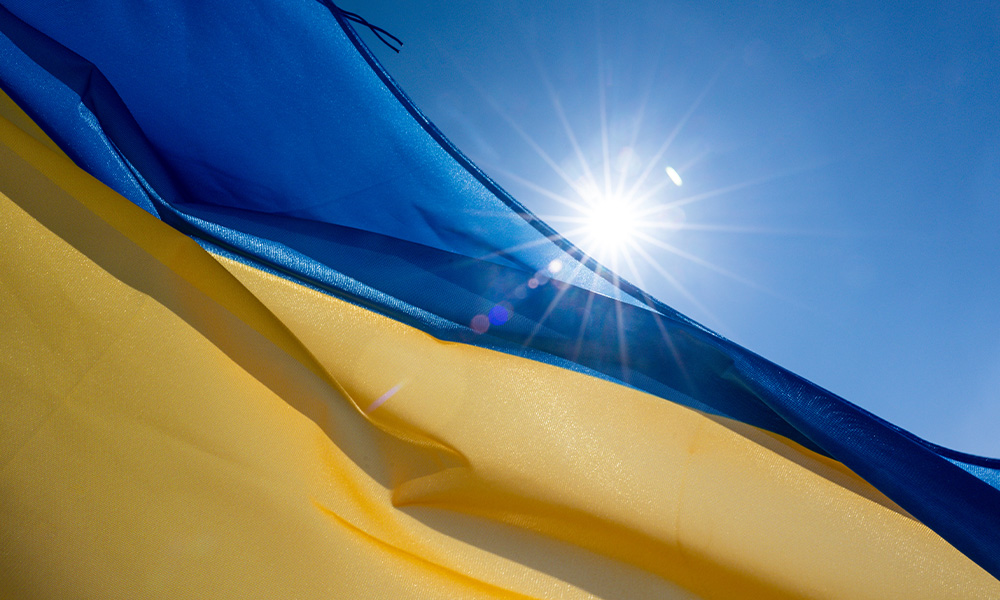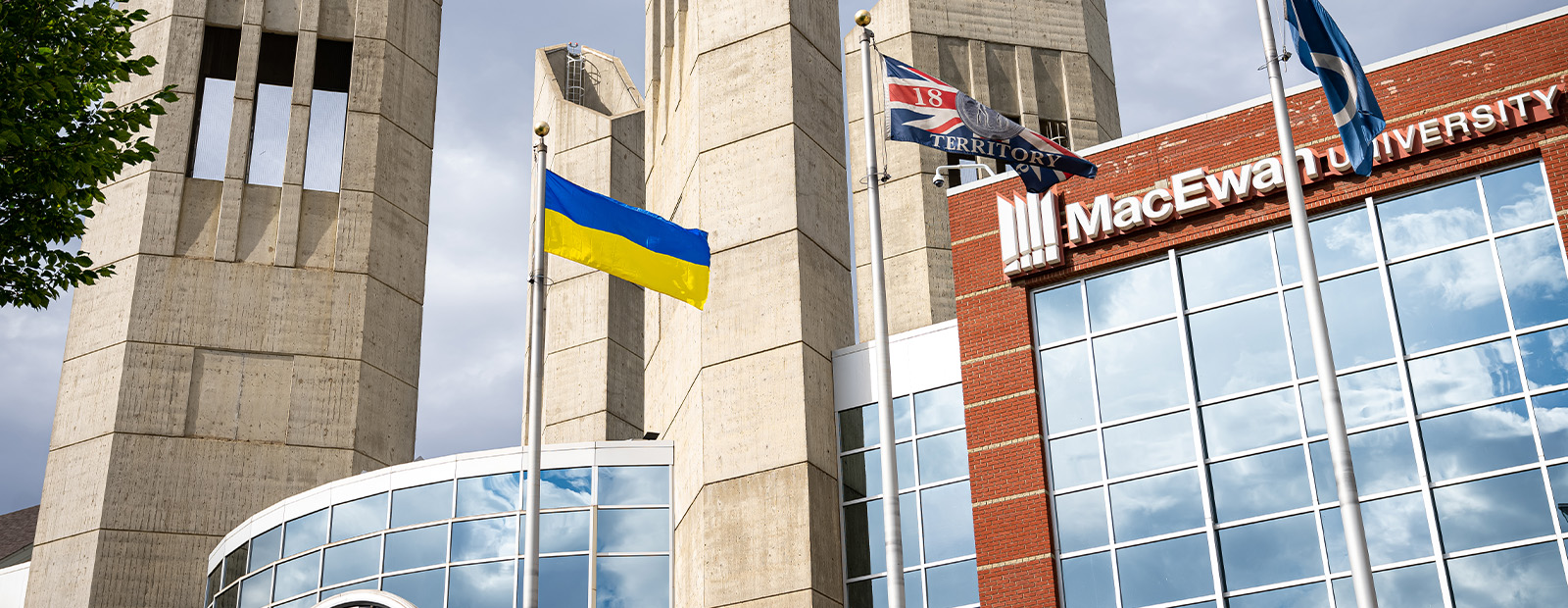MacEwan is welcoming Ukrainian students into classrooms without them ever setting foot in Edmonton. Dr. Michael Gulayets has been collaborating with Ukrainian professors for several years in his SOCI 395 sociological field school, and this year Dr. Sergiy Yakovenko added a similar virtual component to his ENGL 383 course.
Dr. Gulayets was approached by the Ukrainian Resource and Development Centre (URDC) in 2018 with the idea of connecting with the Ukrainian Catholic University (UCU) in Lviv. He partnered with a sociology professor at the institution to create a course about social inequality and an accompanying field school. The course was first implemented during the Spring 2019 term, with 10 MacEwan students travelling with Dr. Gulayets to Lviv for two weeks to meet with UCU students and faculty.
“We had classes together and they took us to an orphanage, a drug rehab centre and a police station to see how these social institutions operate in Ukraine,” says Dr. Gulayets. “But the best parts of the course were the interactions between students, and I realized we didn’t leave enough opportunities for those connections.”
Dr. Gulayets took what he learned during that first field school and began to work on shaping the next one into something even better. Unfortunately, once the COVID pandemic hit, border restrictions caused them to cancel their trip only weeks before their planned flights. Restrictions continued to prevent travel in 2021. In 2022, the Field School was expanded to include weekly online meetings between the two classes in the Winter term. However, the war in Ukraine caused a disruption of the online meetings and yet another cancellation of travelling to Ukraine in 2022.
The university in Ukraine was used as a shelter in the beginning of the war, and the Ukrainian students saw all of their classes cancelled. They were able to join in on one last virtual class to wrap up the course.
“That final class we had together, which was several weeks into the war, was one of the most powerful experiences I’ve ever had. The Ukrainian students’ strength, resilience, fear and determination all came through on screen. It was an extraordinary experience for both myself and the MacEwan students,” says Dr. Gulayets.
This year, the course is continuing online, with hopes that travel for the field school may still be an option in the future.
In the English department, sessional instructor Dr. Sergiy Yakovenko worked with URDC to develop a session of ENGL 383 that focused on Ukrainian literature. Dr. Yakovenko taught at National University of Kyiv-Mohyla Academy in Ukraine prior to coming to Canada, and used his contacts there to open the class to Ukrainian students. The goal was to have six students join the class remotely, but due to displacements from the war and scheduling issues, only one student was able to attend.
“She connected with us from Sicily where she was a refugee,” says Dr. Yakovenko. “And then she moved to Ireland, also to a refugee camp.”
The course also featured guest speakers from Ukraine, including the author of some of the works studied in the class and professors from the Kyiv-Mohyla Academy. Dr. Yakovenko acted as an interpreter between the Ukrainian author Vasyl Gabor and the class to ensure that the language barrier wasn’t an issue.
“It was fascinating because they brought another perspective to the works we discussed,” says English student Erica Myles. “While my classmates and I had cultural opinions on themes and symbolism that differed, they were still comparable. The Ukrainian student saw the themes in a completely different light instead of just a variation of what is taught in Canadian education.”
“They definitely provided more context and information,” adds fellow student Ashley Alton. “Especially with translations, they were able to identify missing elements in a story and getting that clarity on what the literature really means helped a lot in my experiences and overall enjoyment in the course.”
Darren Lennartsson, another student in the class, says his eyes were opened to Ukraine and its literature. “Exploring how their cultural and historical context shaped their work was fascinating. These influences continue today, evidenced by the current state of affairs and considering that our professor and guest lecturers had all grown up under the communist Soviet Union.”
Dr. Yakovenko says that he’s interested in potentially teaching a similar course in the future. “The thought that I’m becoming kind of a representative of Ukrainian culture and a voice of Ukrainian literature here makes me proud, and feels to me like a contribution to the Ukrainian cause.”
 Full story
Full story
